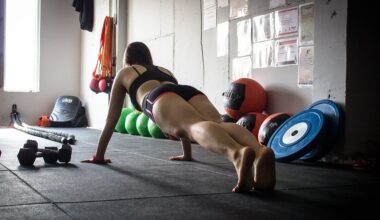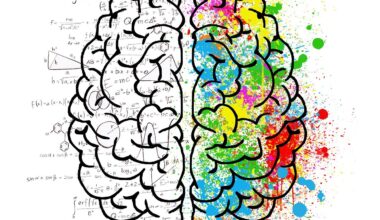Understanding Sleep Apnea
Sleep apnea occurs when breathing repeatedly stops and starts during sleep. This interruption can lead to poor sleep quality, which directly impacts overall health. Athletes, especially, need restorative sleep for peak performance. There are several types of sleep apnea, with obstructive sleep apnea (OSA) being the most common. OSA involves the throat muscles intermittently relaxing and blocking the airway during sleep, resulting in snoring and gasping. Central sleep apnea, on the other hand, is less common and occurs when the brain fails to send signals to the muscles that control breathing. Lastly, there’s complex sleep apnea syndrome, which is a combination of both obstructive and central. Identifying and addressing sleep apnea is crucial for athletes, as insufficient sleep can lead to fatigue, decreased focus, and impaired physical performance. Consequently, improving sleep apnea management can lead to enhanced athletic outcomes. It’s essential that athletes consult healthcare providers for proper diagnosis and treatment options, which may include lifestyle modifications and medical interventions for effective management. Effective management contributes significantly to a more fulfilling sleep experience and improved athletic achievements.
Creating a Sleep-Friendly Environment
An effective approach to improve sleep apnea is to create a sleep-friendly environment. Start by ensuring that the bedroom is dark, quiet, and cool. This can greatly enhance sleep quality and help mitigate apnea symptoms. Avoid electronic devices before bedtime to minimize disruptions caused by blue light. Furthermore, consider investing in blackout curtains and earplugs to eliminate distractions and enhance the tranquil atmosphere. Maintaining a regular sleep schedule is also vital. Going to bed and waking up at the same time each day helps regulate the body’s internal clock, making it easier to achieve restorative sleep. Limiting caffeine and alcohol intake, particularly in the hours leading up to bedtime, can also aid in better sleep patterns. Additionally, keeping a comfortable mattress and pillows is crucial, allowing for a restful night’s sleep without physical discomfort. Engaging in relaxing activities before bed, such as reading or meditation, can further prepare the body for sleep. Combining these approaches can elevate overall sleep quality, contributing to better athletic performance and recovery. Taking the time to create an ideal sleep environment is essential.
Implementing Healthy Lifestyle Choices
Incorporating healthy lifestyle choices is vital for athletes dealing with sleep apnea. Regular exercise not only promotes overall health but also improves sleep quality. Engaging in physical activity can help alleviate symptoms of sleep apnea and minimize fatigue. Aim for at least 30 minutes of moderate exercise daily, such as walking, cycling, or swimming. Additionally, maintaining a balanced diet plays a crucial role in addressing apnea symptoms. Focus on a diet rich in fruits, vegetables, whole grains, lean proteins, and healthy fats. Foods that are high in antioxidants can help combat inflammation and may, therefore, offer additional relief. Furthermore, steering clear of heavy meals right before bedtime can prevent sleep disturbances and allow for better rest. Adequate hydration is also important; however, drinking excessive amounts of fluids before sleep should be avoided to prevent nocturnal trips to the bathroom. Managing stress through relaxation techniques, such as yoga and mindfulness, can also enhance sleep quality. Ultimately, athletes must prioritize their health through mindful choices and practices that directly impact sleep and overall performance.
Considering Medical Interventions
In cases where lifestyle adjustments are insufficient, athletes suffering from sleep apnea should consider medical interventions. Consulting with a healthcare professional can provide insight into effective treatment options tailored to individual needs. Continuous Positive Airway Pressure (CPAP) therapy is a common recommendation for obstructive sleep apnea, involving a device that helps keep the airway open during sleep. CPAP machines require a proper fit and adherence to ensure consistent use and effectiveness. In certain situations, oral appliances that adjust the position of the jaw may also be prescribed. These devices can help prevent airway blockage during sleep. Surgical options are available for specific cases, including uvulopalatopharyngoplasty (UPPP) or maxillomandibular advancement, although they are typically considered last resorts. Additionally, sleep studies may be conducted to monitor sleep patterns and identify the severity of apnea. By weighing the effectiveness and feasibility of each option, athletes can take informed steps toward managing their condition. Regular follow-ups to assess the effectiveness of treatments are equally important to ensure the best outcomes for sleep quality and athletic performance.
Utilizing Technology for Sleep Monitoring
Advancements in technology have made it easier for athletes to monitor their sleep and manage apnea effectively. Wearable devices, such as fitness trackers and smartwatches, can provide valuable insights into sleep patterns and quality. These devices often track sleep duration, stages, and disturbances, giving users an understanding of their sleep habits. Utilizing sleep apps can also enhance awareness of factors affecting sleep quality, offering suggestions for improvement based on individual data. For example, certain applications can log environmental conditions that may impact sleep, such as room temperature and noise levels. Engaging with this technology facilitates discussions about sleep with healthcare providers, leading to more tailored treatment options. Additionally, some advanced CPAP devices come equipped with data tracking features that monitor usage patterns and provide feedback. This data allows athletes to adjust their therapy for optimal results. Embracing technological innovations can empower athletes to take control of their sleep health, fostering improved recovery and performance abilities. Understanding one’s sleep behavior through the aid of technology can lead to sustainable enhancements in athletic performance.
Engaging in Relaxation Techniques
Adopting relaxation techniques can significantly enhance sleep quality for athletes suffering from sleep apnea. Practices such as deep breathing exercises, progressive muscle relaxation, and guided imagery can create a calming bedtime routine, allowing the body to transition into sleep mode effectively. Meditation is another beneficial technique that has garnered attention for its positive effects on stress and sleep quality. Engaging in mindfulness meditation or yoga stretches before bed can help induce relaxation and clear the mind of daily stressors. Exploring aromatherapy with essential oils, such as lavender or chamomile, may further promote relaxation and create a soothing atmosphere. Establishing a wind-down period each evening, free from stressors and stimulating activities, can train the body to recognize when it’s time to sleep. Importantly, incorporating these techniques consistently can reinforce the mind-body connection and significantly improve quality of rest. Finding a personalized routine that promotes relaxation is vital, as every individual may respond differently to various methods. Ultimately, prioritizing relaxation before bed not only aids in combating sleep apnea but also enhances athletic recovery and performance.
Seeking Support from Professionals
Finally, seeking support from professionals is crucial for managing sleep apnea effectively. Athletes should not hesitate to consult with healthcare providers who specialize in sleep medicine. These professionals can guide athletes through the complexities of sleep disorders, customizing treatment approaches for individual needs. Joining support groups that focus on sleep apnea can help athletes connect with others experiencing similar challenges while offering a platform for shared experiences, which can be incredibly validating. Moreover, professional therapists may provide coping strategies for stress and anxiety associated with sleep apnea. Engaging with specialists will ensure that athletes receive comprehensive assessments, including potentially undergoing sleep studies. Since sleep apnea can be multifaceted, professional insights can simplify the process of identifying contributing factors and finding effective solutions. Ultimately, collaboration with healthcare experts enables athletes to take proactive steps towards managing their sleep health. Prioritizing support and guidance leads to well-informed decisions that can significantly enhance sleep quality and, by extension, athletic performance and recovery. Strong advocacy for one’s health can pave the way for overcoming sleep apnea challenges.
Conclusion
In conclusion, effectively managing sleep apnea is critical for athletes who aspire to achieve their desired performance levels. Strategies such as creating a sleep-friendly environment, implementing healthy lifestyle choices, considering medical interventions, utilizing technology, engaging in relaxation techniques, and seeking professional support can create a comprehensive plan. Each element works synergistically to enhance sleep quality and overall health. As athletes embrace these strategies, they not only improve their sleep but also experience heightened energy levels, better focus, and enhanced recovery abilities. Prioritizing sleep as an essential part of an athlete’s routine is essential. Proactive measures taken today can lead to numerous long-term benefits for athletic success and overall well-being. By recognizing the complexities of sleep apnea and addressing them holistically, athletes can optimize their performance potential. Furthermore, sharing insights and experiences with a community can provide encouragement and motivation. Ultimately, being informed and taking action can pave the way to much healthier sleep patterns, thereby elevating athletic outcomes to new heights. Athletes owe it to themselves to invest in their sleep, as it is the foundation of peak performance in their respective sports.


